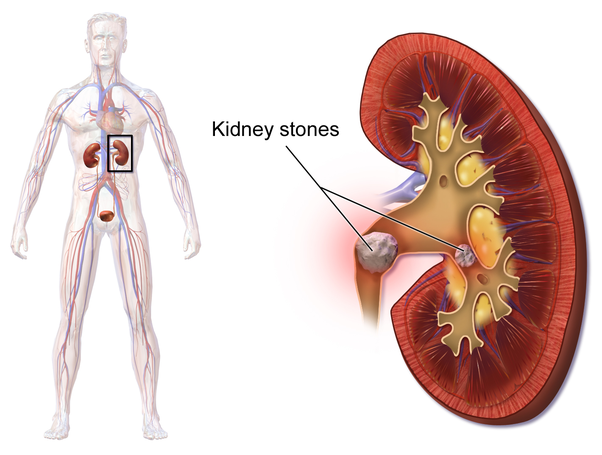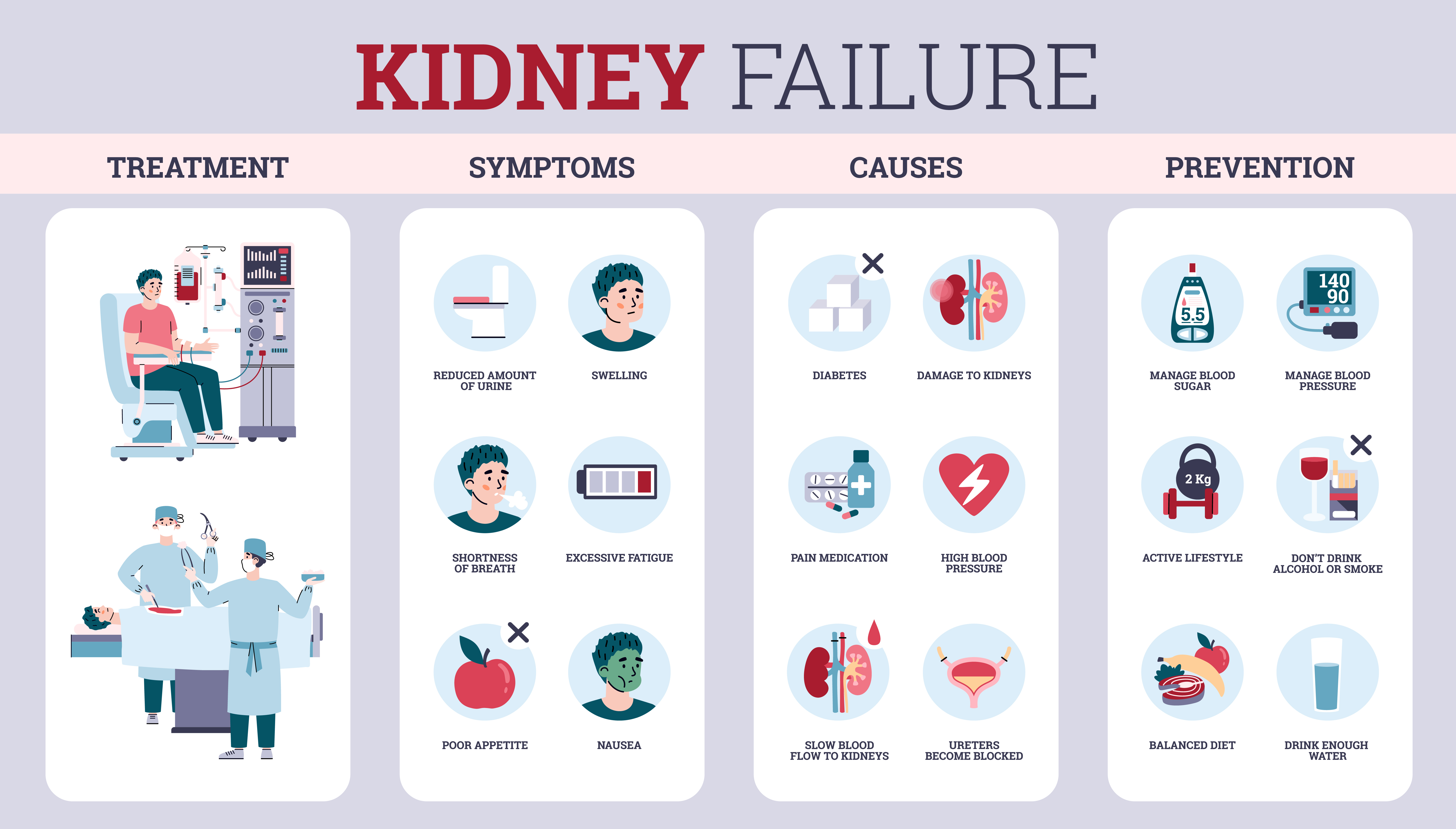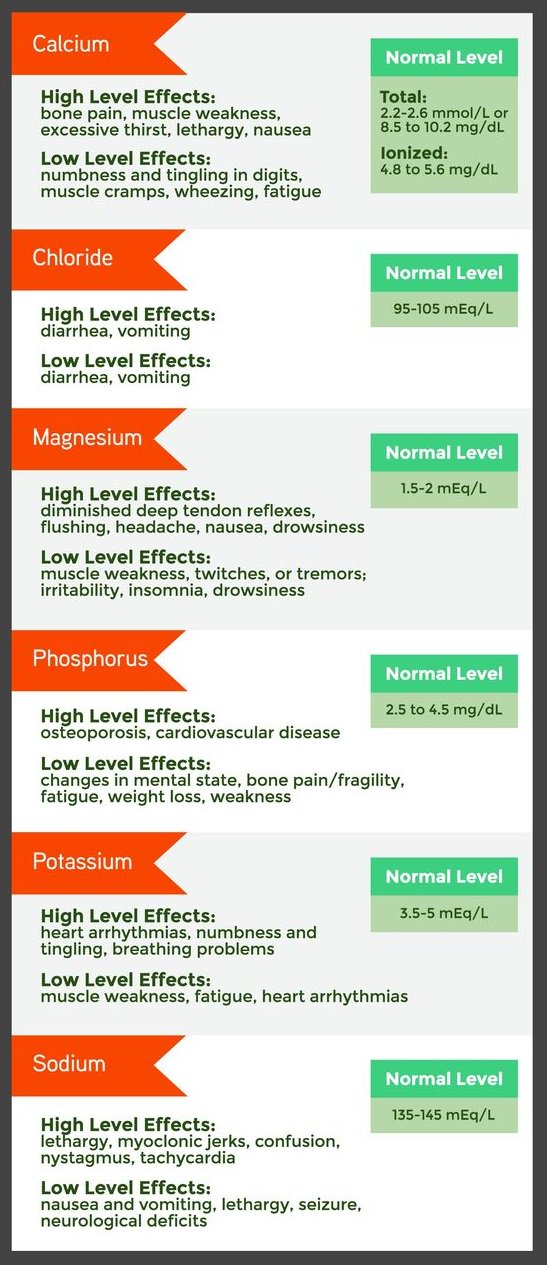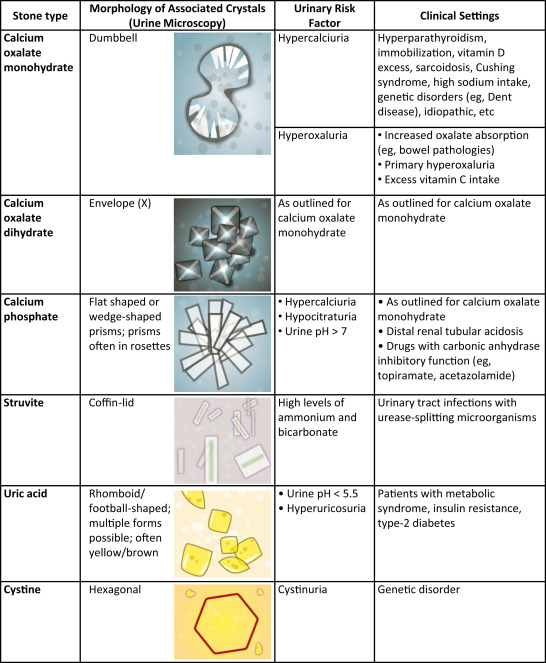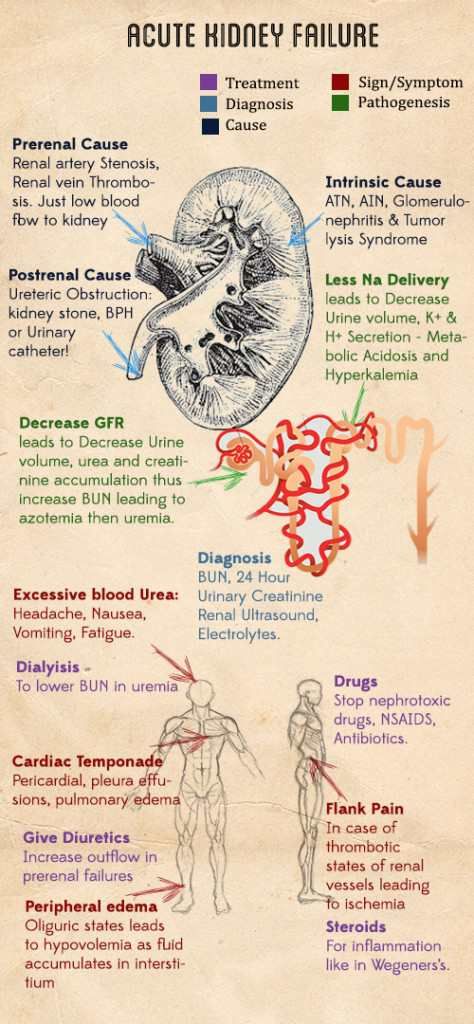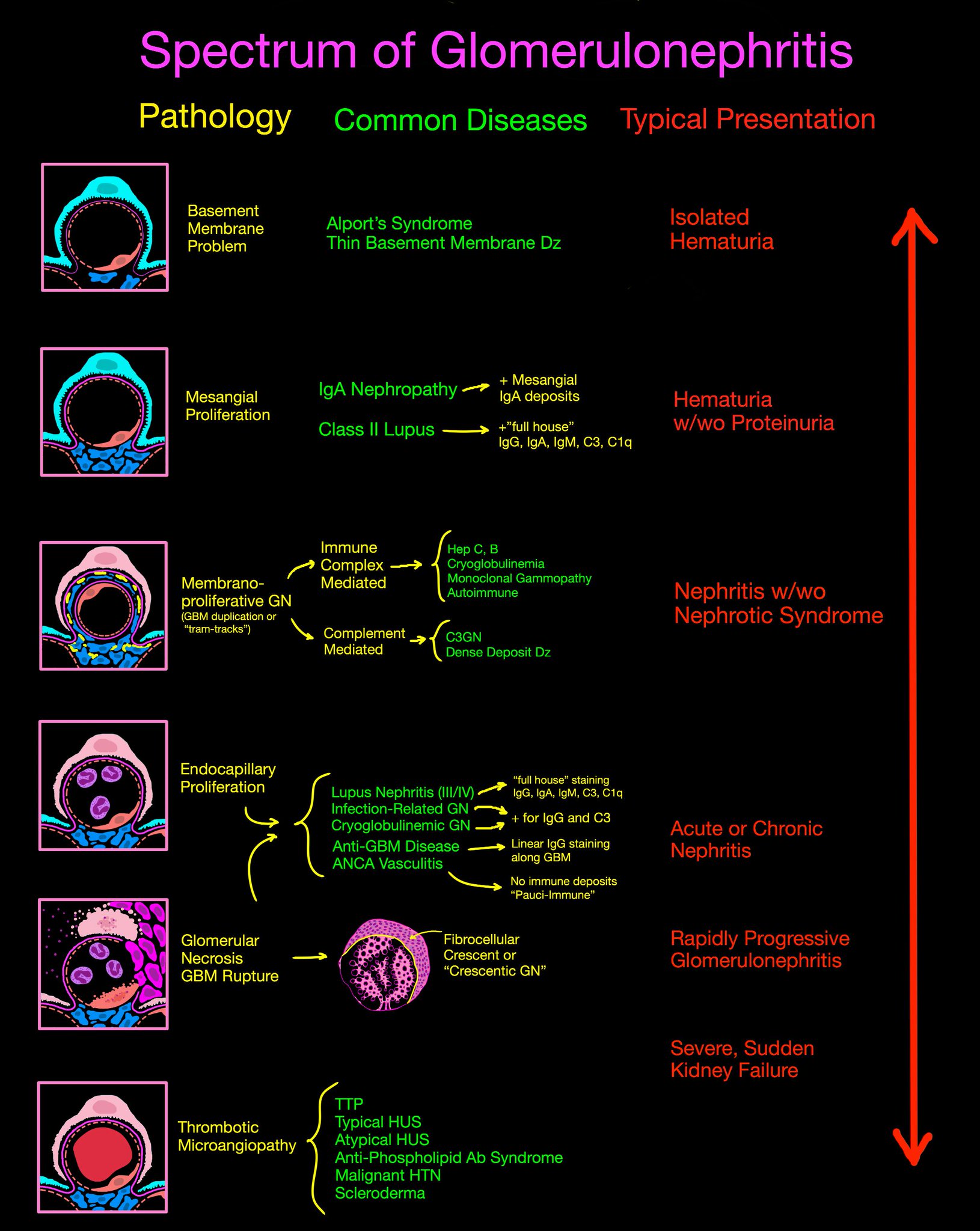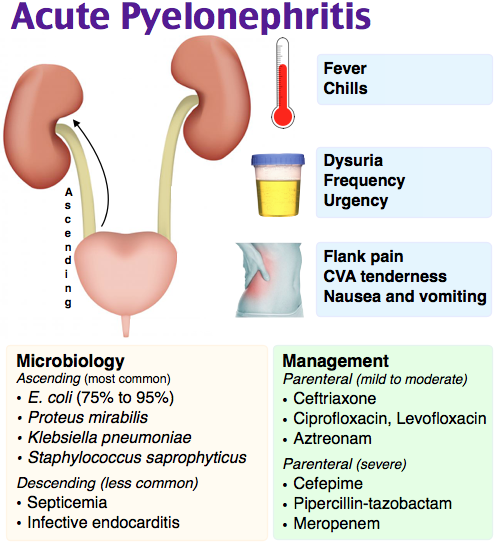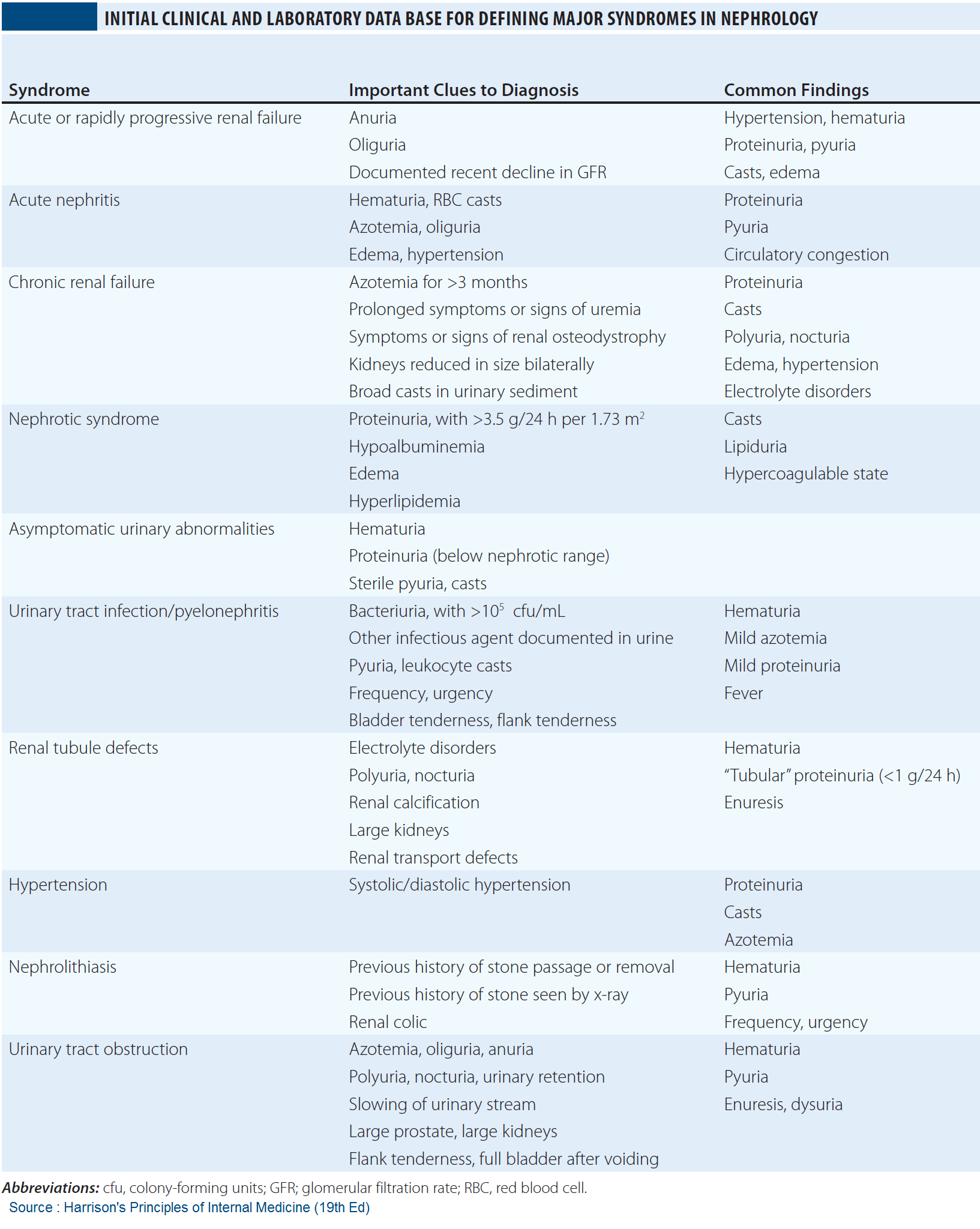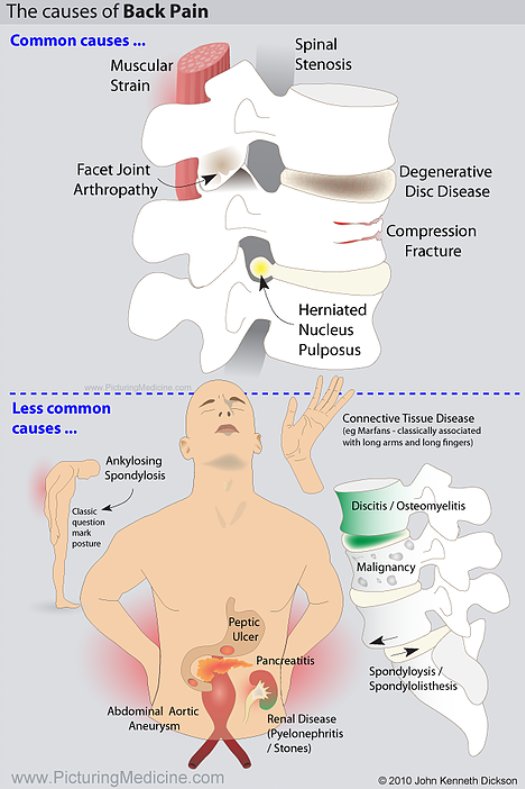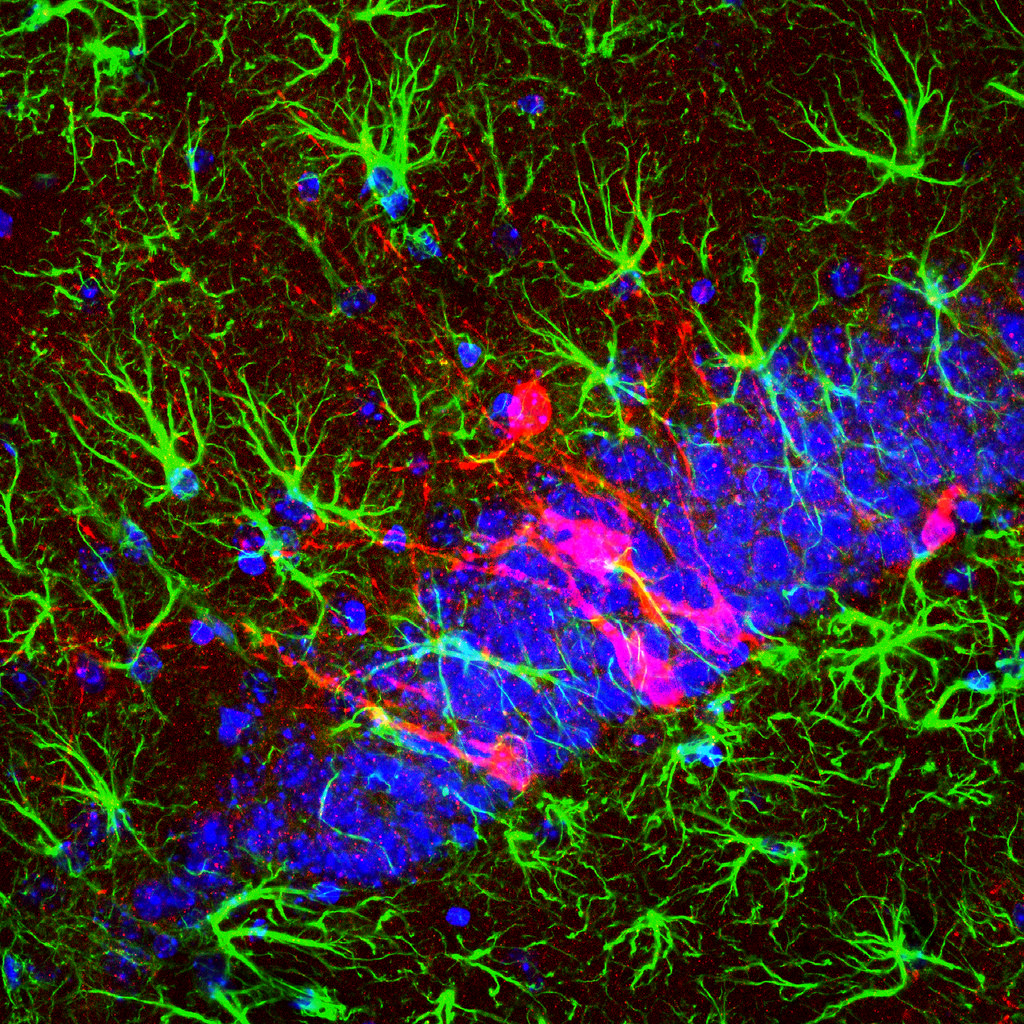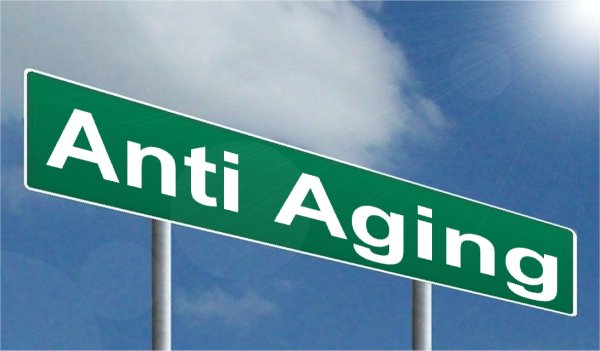Chronic Kidney Disease & Kidney Stones
Chronic kidney disease, also called chronic kidney failure, describes the gradual loss of kidney function. Your kidneys filter wastes and excess fluids from your blood, which are then excreted in your urine.
When chronic kidney disease reaches an advanced stage, dangerous levels of fluid, electrolytes and wastes can build up in your body.
In the early stages of chronic kidney disease, you may have few signs or symptoms. Chronic kidney disease may not become apparent until your kidney function is significantly impaired.
Possible Kidney Health problems & issues include:
- Kidney Health - Urine Colour
- Electrolyte Imbalance
- Kidney Stones Risk Factors
- Chronic Kidney Disease Symptoms
- Acute Kidney Failure
- Urinary tract infections
- Glomerulonephritis
- Polycystic kidney disease
- Pyelonephritis Symptoms & Causes
- Other possible Nephrology Syndromes
Please seek Medical attention as soon as possible if you are unsure of you or your family's health condition.
Kidney Health - What does my Urine Colour mean?
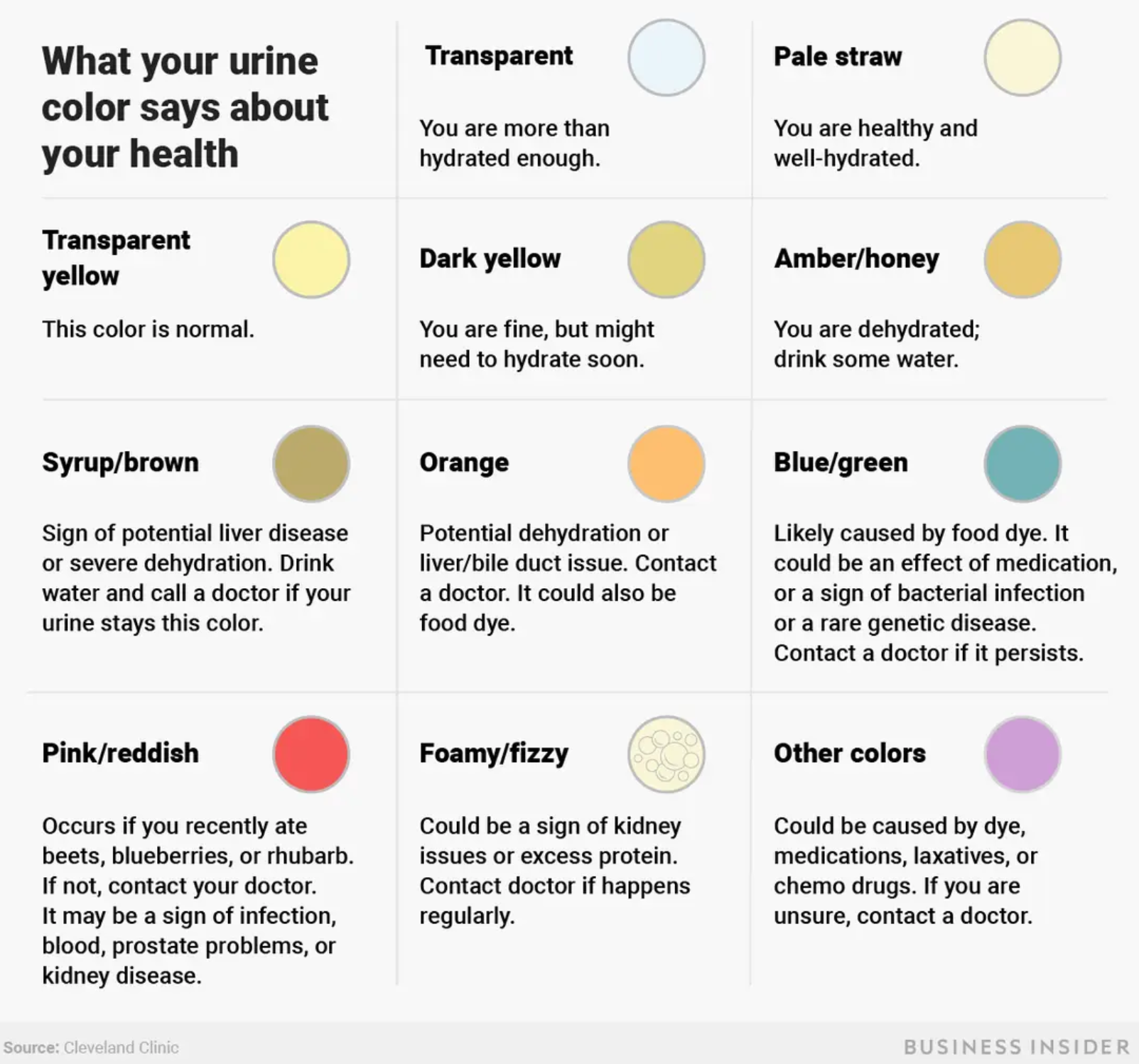
Foamy Urine
Sometimes, urine can also foam up when it's concentrated. Your urine is more concentrated if you have not had much water to drink and you are dehydrated.
Proteinuria
However, foamy urine can also indicate that you have too much of a protein, such as albumin, in your urine, which is not normal. The protein in your urine reacts with the air to create foam. If kidneys are releasing protein into the urine, they are not working properly.
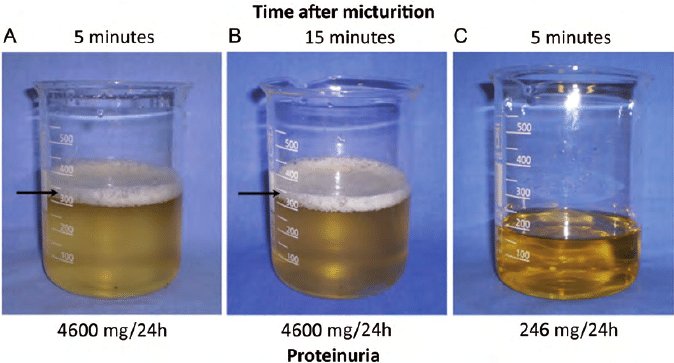
|
Electrolyte Imbalance Water-electrolyte imbalance, is an abnormality in the concentration of electrolytes in the body. Electrolytes play a vital role in maintaining homeostasis in the body. They help to regulate heart and neurological function, fluid balance, oxygen delivery, acid–base balance and much more. The symptoms of electrolyte imbalance are based on which of the electrolyte levels are affected. If your blood test results indicate an altered potassium, magnesium, sodium, or calcium levels, you may experience muscle spasm, weakness, twitching, or convulsions. |
Kidney Stones Risk Factors
Kidney stones are a common kidney problem.
Kidney stones form in your kidneys. As stones move into your ureters — the thin tubes that allow urine to pass from your kidneys to your bladder — signs and symptoms can result. Signs and symptoms of kidney stones can include severe pain, nausea, vomiting, fever, chills and blood in your urine.
Kidney stones Risk factors - Nephrology
Treatment for Kidney stones - Ultrasound Shock wave
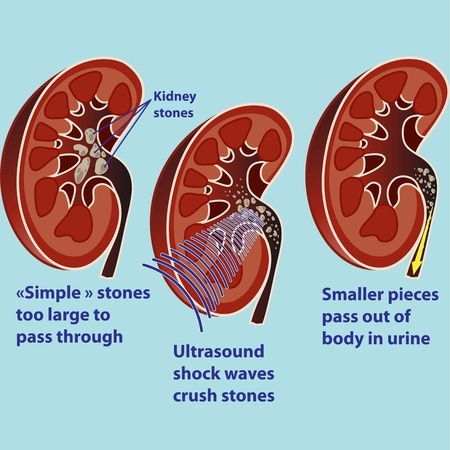
Chronic Kidney Disease - Symptoms & Risk factors
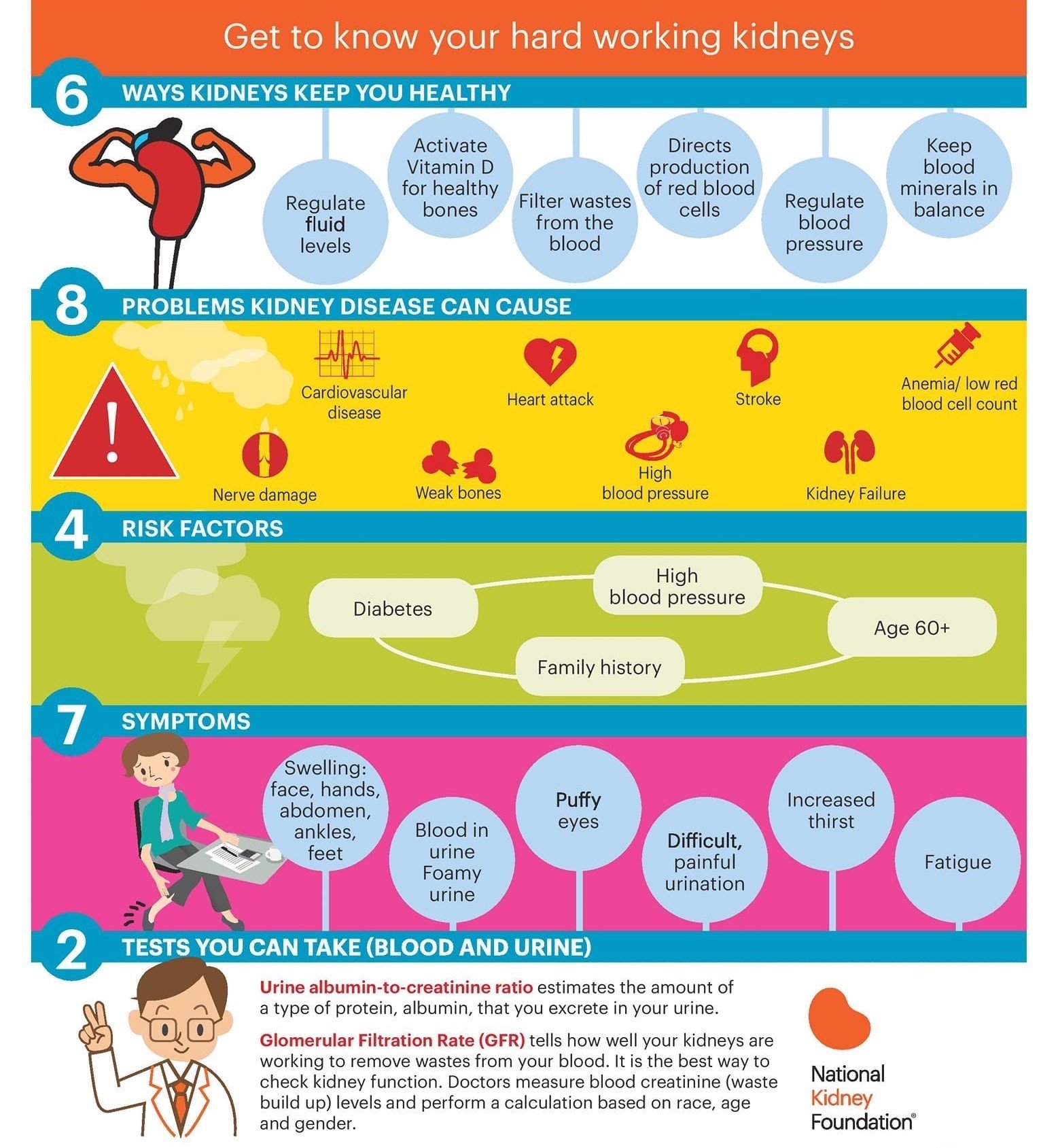
Causes of Acute Kidney Failure - Signs & Symptoms
Child Urinary Tract Infection
A Urinary tract infection (UTI) is an infection that affects part of the urinary tract. When it affects the lower urinary tract it is known as a bladder infection (cystitis) and when it affects the upper urinary tract it is known as a kidney infection (pyelonephritis).
Symptoms from a lower urinary tract infection include pain with urination, frequent urination, and feeling the need to urinate despite having an empty bladder.
Symptoms of a kidney infection include fever and flank pain usually in addition to the symptoms of a lower UTI. Rarely the urine may appear bloody. In the very old and the very young, symptoms may be vague or non-specific.
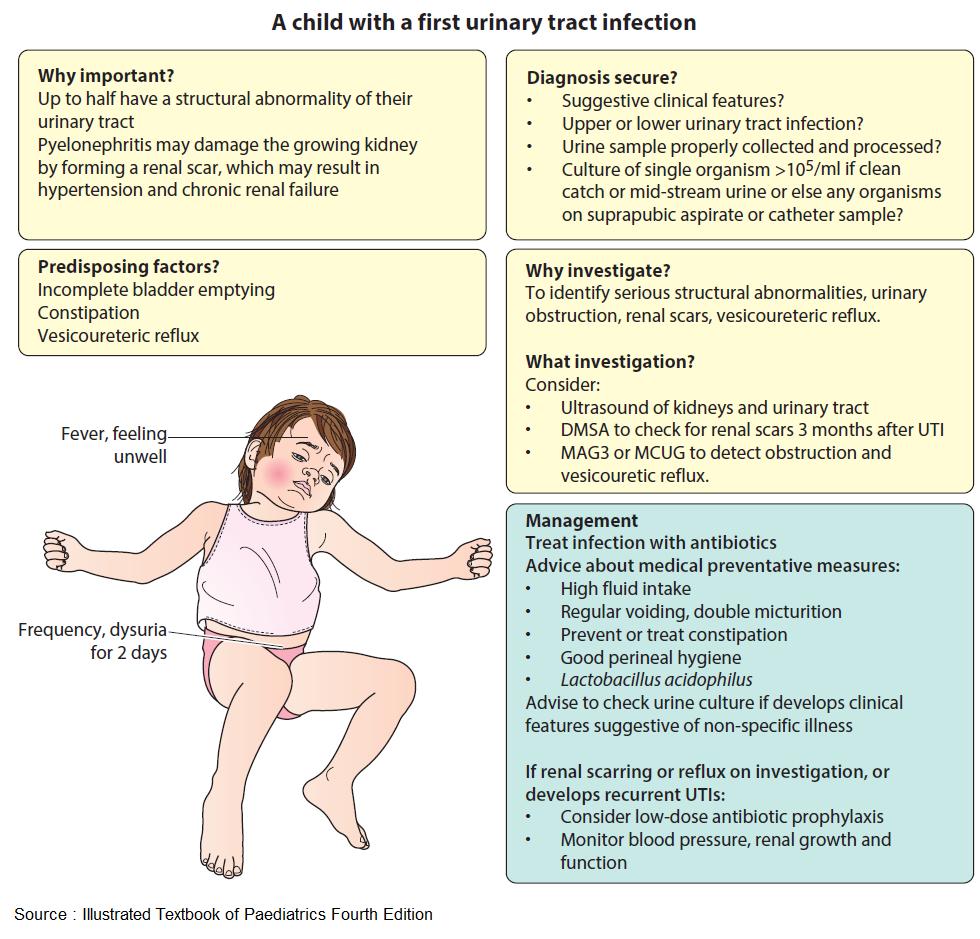
Causes of Glomerulonephritis Spectrum - Nephrology
Glomerulonephritis is inflammation of the tiny filters in your kidneys (glomeruli). Glomeruli remove excess fluid, electrolytes and waste from your bloodstream and pass them into your urine. Glomerulonephritis can come on suddenly (acute) or gradually (chronic).
Polycystic kidney disease (PKD)
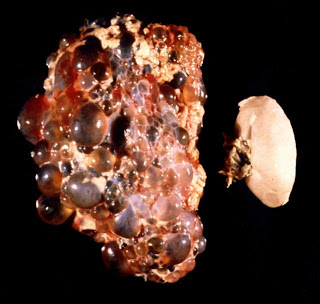 |
Polycystic kidney disease (PKD) is an inherited disorder in which clusters of cysts develop primarily within your kidneys, causing your kidneys to enlarge and lose function over time. Cysts are noncancerous round sacs containing fluid. The cysts vary in size, and they can grow very large. |
Pyelonephritis - Symptoms & Causes
Pyelonephritis is inflammation of the kidney, typically due to a bacterial infection. Symptoms most often include fever and flank tenderness. Other symptoms may include nausea, burning with urination, and frequent urination. Complications may include pus around the kidney, sepsis, or kidney failure.
Other possible Nephrology Syndromes
Less common causes of Back pain may be due to Renal disease relating to the kidney, such as Pyelonephritis or Kidney stones.
Vitamins & Nutrients for a Well-functioning Immune System to Protect against COVID-19 & other Viral Infections

(Ref: Nutrients. 2020 Apr 23;12(4). pii: E1181. doi: 10.3390/nu12041181 Optimal Nutritional Status for a Well-Functioning Immune System Is an Important Factor to Protect against Viral Infections Calder PC1, Carr AC2, Gombart AF3, Eggersdorfer M4.
How a Gluten-free Diet can Improve your Chronic Illnesses
Healthy Diets for Optimal Health
|
The information provided in this website is for knowledge purposes only. It does not constitute medical advice.
Should you encounter any medical problem that you are unsure of, always consult your doctor or health care provider for assistance and medical advice.
